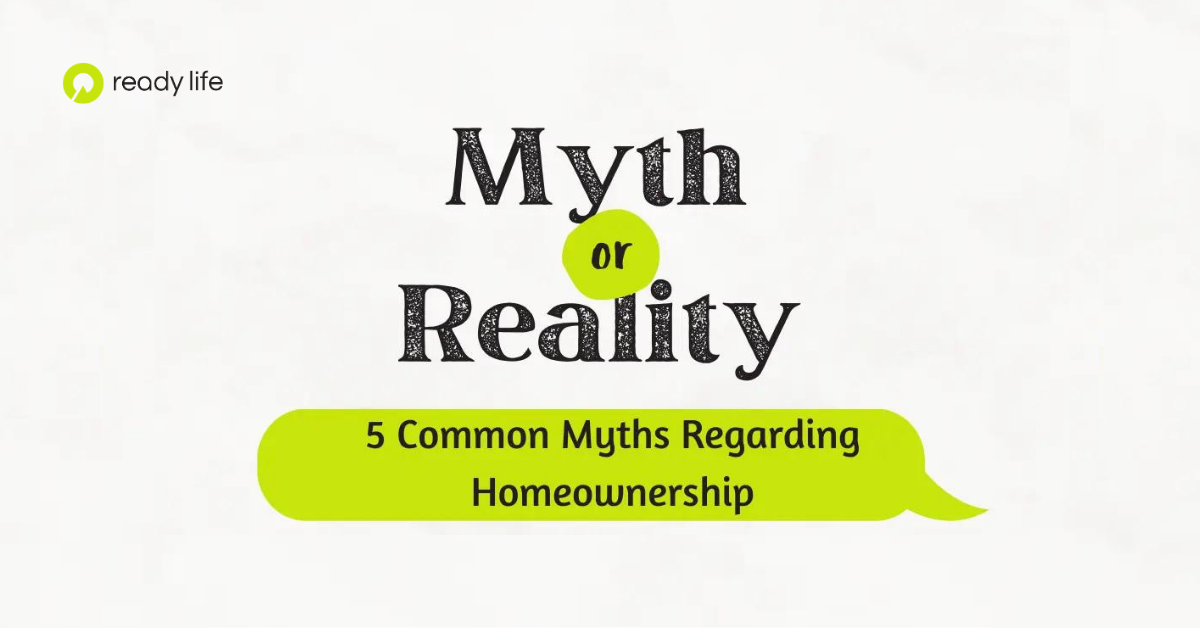July 31, 2023

5 Common Myths Regarding Homeownership
- 5 Common Myths Regarding Homeownership
- 1. Myth: Renting is always more affordable than owning a home. Buying a home means heavy debt.
- Reality: Homeownership can provide long-term financial benefits. While renting may have lower upfront costs and monthly payments, building equity, potential tax advantages, and the possibility of property appreciation can make homeownership a financially wise decision in the long run. Rentals do not build wealth over time. A home mortgage provides stable credit and also an avenue for a potential Home Equity Line of Credit (from the investment you have made in the home).
- 2. Myth: You need a perfect credit score to qualify for a mortgage.
- Reality: It's not necessary to have a perfect credit score. While a higher credit score can sometimes help secure a mortgage with better terms, there are mortgage options available for borrowers with less-than-perfect credit scores. Companies such as Ready Life provide an opportunity to obtain a mortgage with poor and even no credit history.
- 3. Myth: You need 20% down payment to buy a home.
- Reality: It's not a requirement to have a substantial down payment. While a larger down payment can help you secure a better mortgage rate and avoid PMI, there are mortgage programs available that allow for lower down payments, 3-5 % down. Many homeownership programs exist at the federal, state, and local government levels that provide down payment assistance programs.
- 4. Myth: Owning a home is maintenance-free.
- Reality: Homeownership requires ongoing maintenance and repairs. From routine tasks like yard work to larger expenses such as HVAC repairs or roof replacements, homeowners must budget for maintenance costs. It's important to be prepared for these expenses and set aside funds for regular upkeep and unforeseen repairs. Consider some of the items a renter calls upon the landlord for assistance. These fixes become a reality with homeownership. The fixes become part of your investment.
- 5. Myth: You should always buy a home rather than rent.
- Reality: Homeownership may not be the best choice for everyone. Factors such as your lifestyle, financial situation, and long-term plans should be considered. Renting can offer flexibility, lower responsibilities, and the ability to relocate more easily. Owning a home is a significant commitment, and it's important to assess your personal circumstances before making a decision. Homes may always be purchased as investment properties if your lifestyle leans more towards renting. Homeownership should always be considered when seeking a financial investment or creating generational wealth.
- Understanding these myths and realities can help you make informed decisions about homeownership and set realistic expectations as you navigate the process. It's advisable to conduct thorough research before committing to homeownership.
Join us
Create a meaningful change for communities everywhere